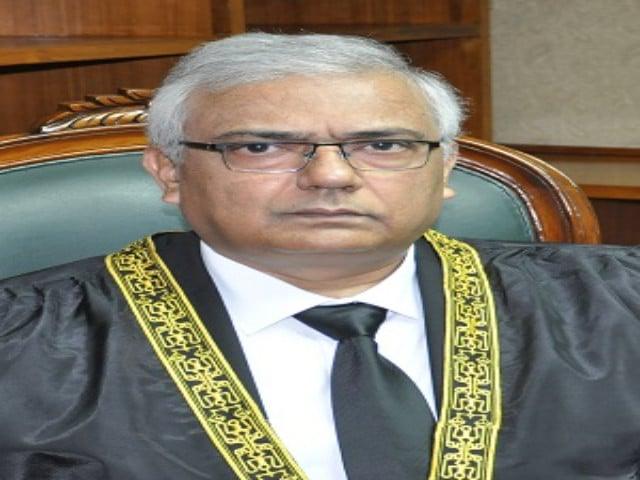Islamabad:
The constitutional bench, led by Justice Aminuddin Khan, is shown in a hurry to move forward with the reserved seat case, where a majority of the judges found on July 12 that PTI is entitled to reserved seats in the national and provincial assemblies.
One of the advice representing the respondent side expressed surprise at the speed at which the constitutional bench continues in this case. He expressed skepticism that the bench can suspend the majority judgment, author of justice Syed Mansoor Ali Shah.
The counselor further questioned the bench to deliver only one day for preparation, suggesting that such haste is unusual and raising concerns.
It is important to note that if the constitutional bench suspends the order, reserved seats will again be assigned the ruling political parties, especially PMLN and PPP.
There are also strong speculation in the bar that the exercise may be planning a different constitutional change to consolidate its dominance over the overall judiciary, suppressing dissenting voices within the institution and facilitating the increase of ‘like -minded judges’.
Although the ruling parties could introduce a change without tackling the question of reserved seats, the recent acceptance of a review in the Article 63A case makes the vote to reject legislators be counted.
Two judges, Justice Ayesha Malik and Justice Aqeel Ahmad Abbasi, who had dismissed the petitions for the review, have been excluded from the larger bench of the committee led by Justice Aminuddin Khan.
This committee includes Justice Jamal Khan Mandokhail and Justice Muhammad Ali Mazahar.
Interestingly, Justice Mazahar was signing the majority’s decision and also two clarifications issued by majority judges, led by Justice Shah, during the term of office of the former CJP Qazi Faez Isa.
Despite this, he agreed with most judges who have now issued messages to the respondents in the case of reserved seats. He made no comments on the profits of the case during Tuesday’s consultation.
Attorney Abdul Moiz Jaferii and witnessed the trial in Courtroom # 1, noted that it was extraordinary that the consultation should take place without involving the author judge, Justice Shah.
Jaferii emphasized that it was noteworthy that the judge who led the hearing had been censored by the majority in the original decision, now under review. He also pointed out that messages were issued in a review where the regulator is openly contrary to the judgment it seeks to have reviewed.
Attorneys believe this case will be a lacquer test for the bench’s ability to maintain the top of the point. The Election Commission in Pakistan (ECP) has deliberately defied the Supreme Court’s judgment.
Legal experts claim that the judges must demonstrate their obligation to respect each other’s decisions, as failure to comply with this will provide a free passport to disobedient legal decisions.
Since the passage of the 26th amendment, the exercise has gained significant dominance over the judiciary, a step that could not have been possible without internal support for the current regime. Now, judge who is sympathetic to the current government is at the helm, while those who are not in line with the government have been sidelined.
The Judges of Islamabad High Court, who have raised their votes against performing interference in legal functions, face punitive measures in different forms.
Senior judges do not step in to save them. However, Chief Justice Yahya Afridi has made it clear that transferred judges will be placed at the bottom of the seniority list in Islamabad High Court.
This case is of particular importance to the independence of the judiciary. It is widely understood that Justice Shah is targeted to make the decision in the case for reserved seats.
All eyes are now at today’s hearing of the case for reserved seats with expectations that some judges can again question the lack of the decision made by the ECP.



